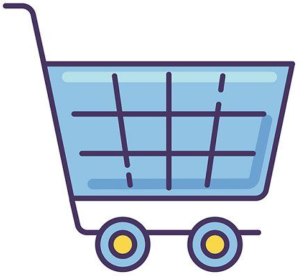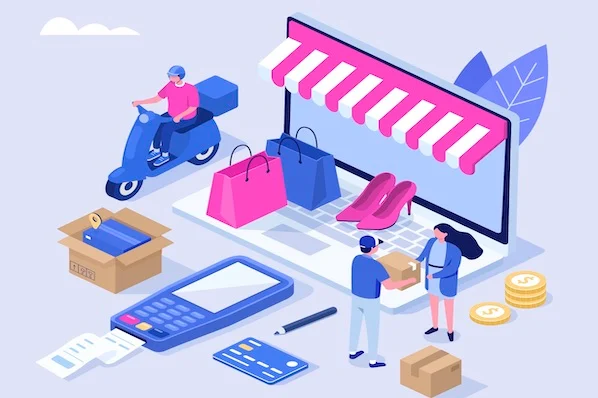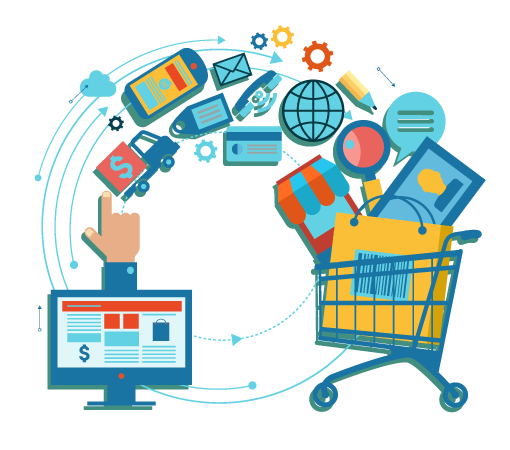or call: +1 (845) 347-8894
or call: +1 (845) 347-8894
E-Commerce
A Comprehensive Guide to the Digital Marketplace


Online Storefronts
At the heart of e-commerce, online storefronts are digital platforms where businesses showcase and sell their products or services.
Logistics and Fulfillment
Businesses must establish reliable logistics and fulfillment processes to ensure timely and accurate delivery to customers.
Digital Marketing
E-commerce relies heavily on digital marketing strategies to drive traffic and attract customers.
Inventory Management
Efficient inventory management ensures that businesses can fulfill orders promptly.

All you need to know about E-commerce
E-commerce has evolved into a dynamic and indispensable component of the modern economy. Its impact on businesses and consumers continues to grow, driven by technological advancements, changing consumer behaviors, and a global shift towards digitalization. As we navigate the ever-changing landscape of e-commerce, staying informed about its key components, challenges, and future trends is essential for businesses and consumers alike.
Impact on Businesses
Global Reach
E-commerce has eliminated geographical barriers, allowing businesses to reach a global audience. Small and medium-sized enterprises (SMEs) can now compete on an international scale.
Cost Efficiency
Compared to traditional brick-and-mortar stores, operating an online business is often more cost-effective. Reduced overhead costs contribute to higher profit margins for e-commerce enterprises.
Impact on Consumers
Convenience
E-commerce provides unparalleled convenience, allowing consumers to shop anytime, anywhere.
Variety
Consumers have access to an extensive range of products and services online.
Experience
E-commerce leverages data to personalize the shopping experience.
Challenges and Future Trends
As e-commerce transactions involve sensitive information, security concerns such as data breaches and online fraud pose challenges. Businesses must prioritize cybersecurity measures to safeguard customer data.
The proliferation of smartphones has given rise to mobile commerce. Optimizing e-commerce platforms for mobile devices and embracing mobile payment solutions are crucial for staying competitive.
Future of E-commerce
Immersive Technologies
The future of e-commerce will witness a profound shift as immersive technologies like augmented reality (AR) and virtual reality (VR) redefine the online shopping experience.
Rise of Sustainable
A growing emphasis on sustainability and ethical practices will shape the future of e-commerce.
Q & A
Contact us
Just drop in a message for any queries. We would be more than happy to assist you.
